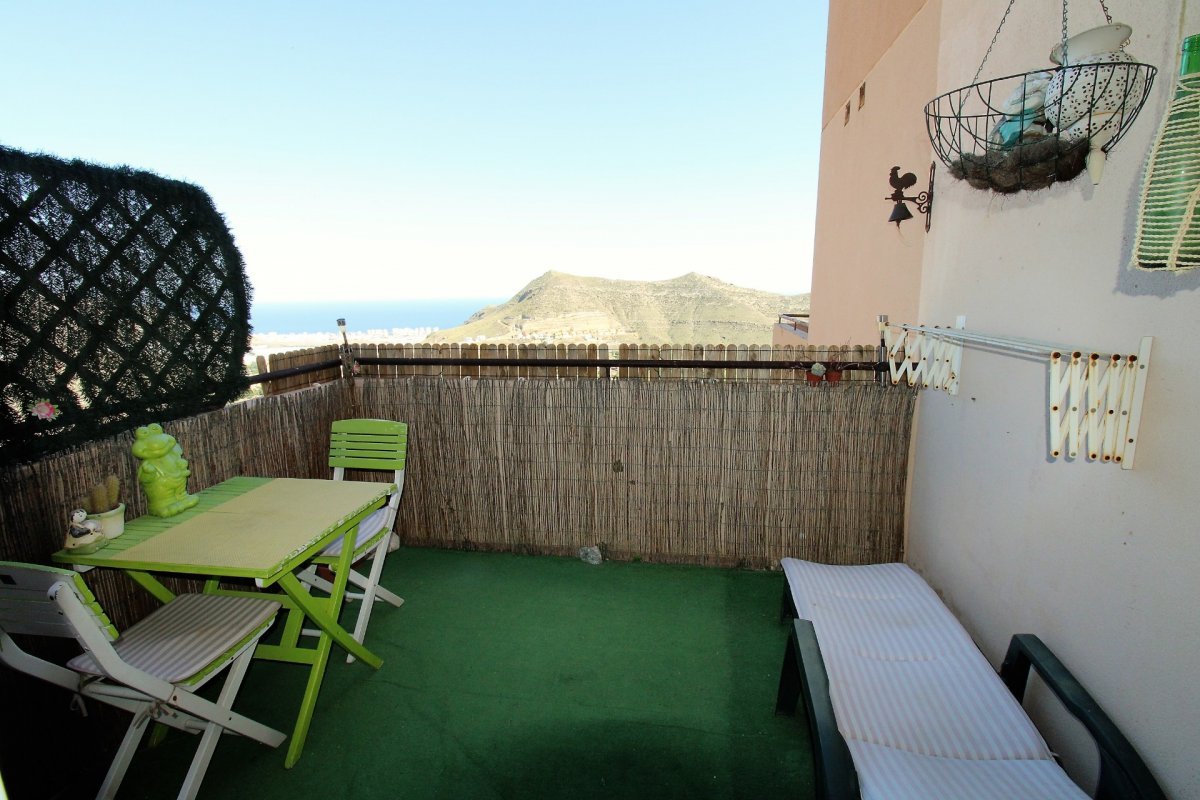Find the flat of your dreams: Rentals that will make you feel right at home
Tu búsqueda del hogar perfecto comienza aquí. 🌟 Explora nuestra selección de alquileres de pisos que se adaptan a tus necesidades y presupuesto. Nos enorgullece ofrecer opciones que no solo son cómodas y asequibles, sino que también te permiten vivir la vida al máximo. Desde vecindarios vibrantes hasta tranquilas zonas residenciales, estamos aquí para ayudarte a encontrar el lugar perfecto donde puedas construir recuerdos duraderos. ¡Bienvenido a la emocionante aventura de encontrar tu nuevo hogar!
Flat rentals: The ideal place to start a new life
Descubre el lugar perfecto para llamar hogar. 🏡 Con una amplia variedad de alquileres de pisos cómodos y asequibles, encontrar el espacio ideal para ti es más fácil que nunca. Desde acogedores estudios hasta espaciosas residencias, tenemos opciones para satisfacer todas tus necesidades. Imagina llegar a casa a un lugar que se adapta perfectamente a tu estilo de vida, con comodidades que hacen que cada día sea especial. ¡Bienvenido a la comodidad y la asequibilidad!
Welcome to your new home: Find comfortable and affordable flat rentals
Explora el encanto de tus nuevos aposentos. ✨ Nuestros alquileres de pisos han sido cuidadosamente seleccionados para ofrecer no solo comodidad, sino también un ambiente acogedor que te hará sentir como en casa desde el primer día. Desde cocinas modernas hasta áreas de estar espaciosas, cada detalle ha sido pensado para brindarte la experiencia de vida que mereces. Sumérgete en la emoción de un nuevo comienzo y descubre cómo un piso acogedor puede transformar tu día a día.
Find your perfect home: Flat rentals to suit your needs
- Define tus necesidades:
- ¿Cuántas habitaciones necesitas?
- ¿Qué comodidades son imprescindibles para ti (estacionamiento, lavandería, etc.)?
- ¿Cuál es tu presupuesto máximo?
- Location:
- Elige una ubicación que se adapte a tu estilo de vida (cerca del trabajo, escuelas, transporte público, etc.).
- Investiga sobre la seguridad y la calidad de vida en la zona.
- Presupuesto:
- Fija un presupuesto realista y asegúrate de incluir gastos adicionales como servicios públicos, mantenimiento, etc.
- Búsqueda en línea:
- Utiliza sitios web y aplicaciones especializadas en alquileres para buscar opciones.
- Filtra los resultados según tus criterios, como precio, ubicación y comodidades.
- Visitas:
- Programa visitas a los lugares que te interesen.
- Haz preguntas sobre políticas del edificio, costos adicionales, etc.
- Compara opciones:
- No te apresures a tomar una decisión. Compara diferentes opciones antes de comprometerte.
- Revisa el contrato:
- Lee cuidadosamente el contrato de arrendamiento antes de firmar. Asegúrate de entender todos los términos y condiciones.
- Historial del propietario/inmobiliaria:
- Investiga la reputación del propietario o la agencia inmobiliaria. Las reseñas en línea pueden proporcionar información útil.
- Comunidad y Vecindario:
- Averigua sobre la comunidad y el vecindario. Las interacciones sociales y la calidad de vida también son importantes.
- Prepárate para mudarte:
- Organiza la logística de la mudanza con anticipación.
Recuerda que encontrar el hogar perfecto lleva tiempo, así que ten paciencia y no te comprometas a la primera opción si no estás completamente seguro. ¡Buena suerte en tu búsqueda!
Rental forecasts in Spain
Rental forecasts in Spain can depend on a number of factors, such as the economic situation, government policies and supply and demand in the property market. Here are some approximate trends and forecasts for rents in Spain:
1. Price increases: In general, it is expected that the prices of rental continue to increase in Spain due to the growing demand for rental housing and the shortage of supply in some popular urban areas.
2. Control of the rental market: As a result of the current situation and the economic difficulties derived from the COVID-19 pandemic, the implementation of measures to control rental prices has been considered in some cities and autonomous communities in Spain. However, it is important to bear in mind that these measures may vary and may not be present in all areas.
3. Increased demand in urban and coastal areas: Rental demand in urban and coastal areas is expected to remain high, as they are popular destinations for living and working. This may lead to higher prices in these areas.
4. Increased supply in rural areas: As more people choose to live in rural areas or work remotely, there is likely to be an increase in the supply of rental flats in these areas. This could lead to increased competition among landlords and eventually have an impact on rental prices.
These forecasts are general and may vary depending on the economic situation and the specific policies of each region in Spain. It is advisable to consult specialised sources on the real estate market or talk to experts in the area you are interested in to obtain more specific and up-to-date forecasts.
Rental prices in the community of Barcelona
Rental prices in the Community of Barcelona can vary depending on the location, size and characteristics of the property. Barcelona is a very popular and cosmopolitan city, so rental prices tend to be higher compared to other areas of the Community.
In the centre of Barcelona, rents for 1-bedroom flats usually start at around 900 euros per month. For 2-bedroom flats, prices can range from 1,200 to 1,800 euros per month. The closer the flat is to the centre and tourist areas, the higher the prices are likely to be.
If you are looking for larger properties, such as a 3 or 4-bedroom flat, rents can exceed 2,000 euros per month, especially in prestigious areas or more exclusive neighbourhoods of Barcelona.
It is important to keep in mind that these prices are only an estimate and may vary depending on the exact location and the supply and demand in the real estate market. You may also find cheaper options in areas further away from the city centre.
For more precise information on the prices of rental In the Community of Barcelona, I would recommend that you consult online property portals, contact local estate agents or look for rental advertisements in newspapers and housing magazines. They will be able to provide you with up-to-date information on rental prices in the area you are interested in.
Rental prices in the community of Madrid
Rental prices in the Community of Madrid vary according to the location, size and characteristics of the property. Madrid is a city in high demand, so rental prices tend to be higher compared to other areas of the Community.
In the centre of Madrid, rents for 1-bedroom flats usually start at around 800 euros per month. For 2-bedroom flats, prices can range from 1,000 to 1,500 euros per month. The closer the flat is to the centre and the shopping and leisure areas, the higher the prices are likely to be.
If you are looking for larger properties, such as a 3 or 4 bedroom flat, rents can exceed 2,000 euros per month, especially in prestigious areas or in more exclusive neighbourhoods of Madrid.
It is important to keep in mind that these prices are only an estimate and may vary depending on the exact location and the supply and demand in the real estate market. You may also find cheaper options in areas further away from the city centre.
For more precise information on the prices of rental In the Community of Madrid, I would recommend that you consult online property portals, contact local estate agents or look for rental advertisements in newspapers and housing magazines. They will be able to provide you with up-to-date information on rental prices in the area you are interested in.
Rental prices in the Valencian Community
Los precios de alquiler en la Comunidad Valenciana pueden variar según la ubicación, el tamaño y las características de la propiedad. En general, los alquileres en la Comunidad Valenciana suelen ser más accesibles en comparación con otras regiones de España.
En ciudades como Valencia y Alicante, los alquileres de apartamentos de 1 habitación suelen oscilar entre los 400 y los 700 euros al mes, dependiendo de la ubicación y la calidad del apartamento. Para apartamentos de 2 habitaciones, los precios pueden ir desde los 600 hasta los 1.000 euros mensuales.
Si estás buscando propiedades más grandes, como un piso de 3 habitaciones o una casa adosada, los precios pueden variar entre los 800 y los 1.500 euros al mes, dependiendo de la zona y las comodidades ofrecidas.
Es importante tener en cuenta que estos precios son solo orientativos y pueden variar según la demanda y la oferta en cada momento. Además, ten en cuenta que en algunas zonas turísticas populares de la Comunidad Valenciana, como Benidorm o Denia, los precios de rental pueden ser más altos debido a la demanda de propiedades de vacaciones.
Para obtener información más precisa sobre los precios de alquiler en la Comunidad Valenciana, te recomendaría consultar portales inmobiliarios en línea o contactar directamente con agencias inmobiliarias locales. Ellos podrán asesorarte de manera más precisa sobre los precios actuales en la zona específica que te interesa.
Studio – Vicar (La envia golf)

, 40m2, 7m2, 1 , ,
Flat – Vicar (La envia golf)

BLACK FRIDAY! Furnished studio with ALL EXPENSES INCLUDED, panoramic views of the Mediterranean Sea, Gádor Valley and Vícar golf course. Located in La Send Golf, a distinguished residential area with private security 24 hours, just 3km from Roquetas de Mar and the highway in all directions. It consists of 40m2, with 7m2 terrace with spectacular views, air-conditioned living room separated from the bedroom by glass brick wall with good natural light and ventilation. Built-in wardrobe, kitchen and bathroom independent and fully equipped with appliances and toilets. The apartment also includes a storage room and optionally an interior parking space. Do not miss this opportunity, contact us.










